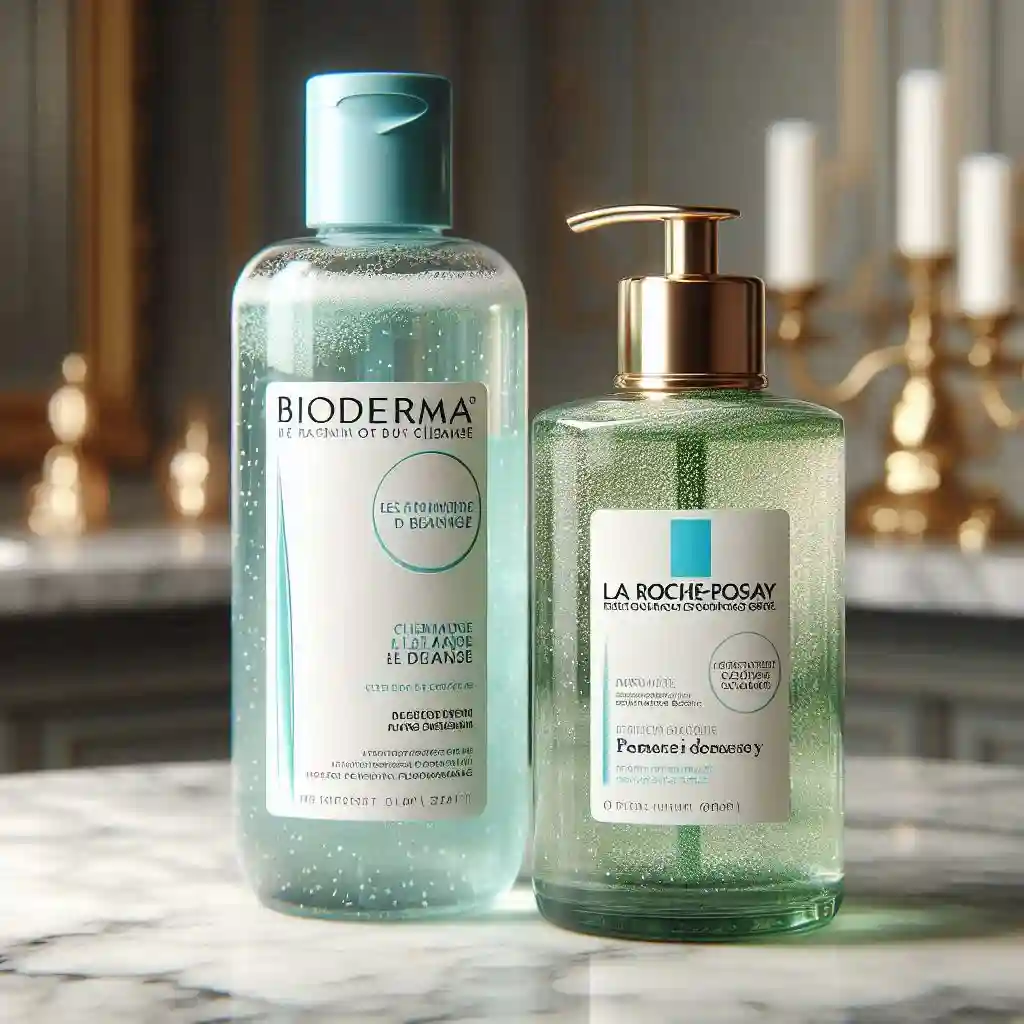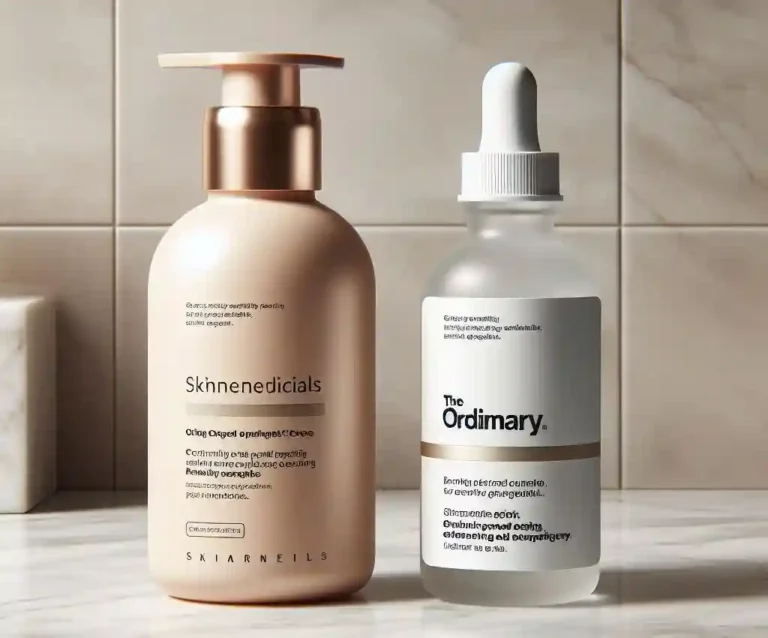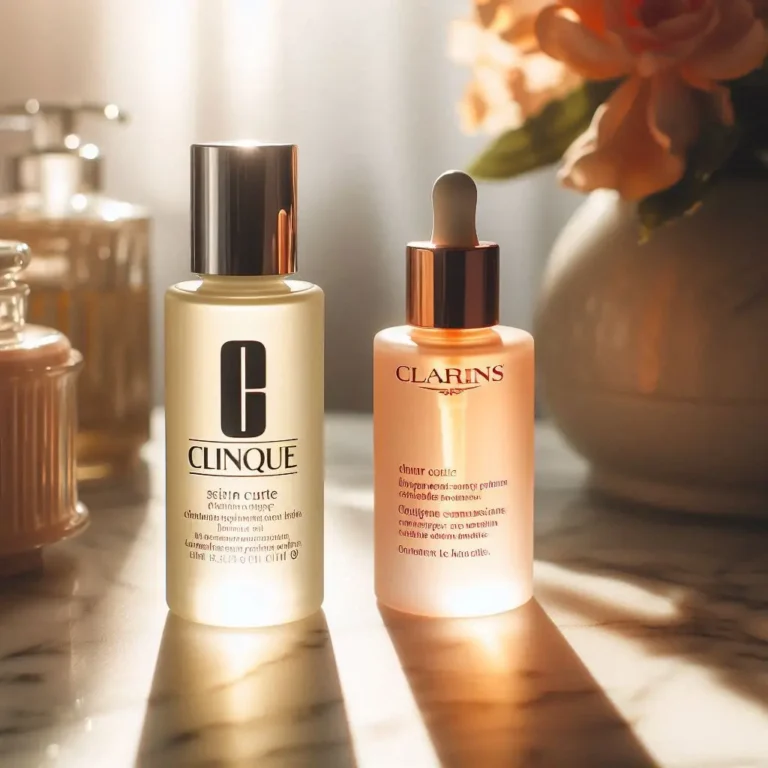Bioderma vs La Roche-Posay – Which Brand is Best for Your Skin?
Bioderma vs La Roche-Posay – Two French skincare giants, Bioderma and La Roche-Posay, have been gaining popularity worldwide for their effective and gentle products.
Both brands have their own strengths and weaknesses, and it’s essential to understand the differences between them to make an informed decision.
In this article, we’ll delve into the world of Bioderma and La Roche-Posay, comparing their products, ingredients, and benefits to help you determine which brand is best for your skin type and concerns.
Bioderma vs La Roche-Posay – A Quick Comparison

| Category | Bioderma | La Roche-Posay |
|---|---|---|
| Product Line | Sébium, Hydrabio, Sensibio | Toleriane, Effaclar, Anthelios |
| Skin Type | Sensitive, dry, combination | Normal, oily, acne-prone |
| Ingredients | Natural, gentle, non-irritating | Advanced skincare technology |
| Price | Affordable, mid-range | Premium, high-end |
| Customer Reviews | 4.5/5 stars | 4.7/5 stars |
| Key Benefits | Gentle, non-irritating, hydrating | Advanced skincare technology, effective results |
| Target Skin Concerns | Sensitive skin, dry skin, acne | Acne, hyperpigmentation, rosacea |
| Product Range | Moisturizers, cleansers, serums | Moisturizers, cleansers, sunscreens |
| Brand Reputation | Known for gentle, non-irritating products | Known for advanced skincare technology |
The Origins of Excellence: A Brief History of Bioderma and La Roche-Posay

Bioderma: A Legacy of Innovation
Bioderma was founded in 1977 by Dr. Yves Roberts, a French dermatologist who was passionate about creating skincare products that were both effective and gentle.
Dr. Roberts’ vision was to create products that would help people achieve healthy, radiant skin, and he spent years researching and developing formulas that would meet this goal. Today, Bioderma is a global brand with a wide range of products that cater to various skin types and concerns.
La Roche-Posay: A Legacy of Science
La Roche-Posay, on the other hand, has its roots in the 1970s, when the company was founded by a group of entrepreneurs who were passionate about creating skincare products that were both effective and gentle.
The brand’s name is derived from the French town of La Roche-Posay, where the company’s founders first established their headquarters. La Roche-Posay is known for its commitment to scientific research and development, and its products are often praised for their ability to deliver real results.
Product Lineup Showdown: Which Brand Offers the Most Options for Your Skin Type?

Bioderma’s Product Lineup
Bioderma’s product lineup is divided into several categories, including:
- Sébium: A range of products designed to combat acne and oily skin
- Hydrabio: A range of products designed to hydrate and nourish dry skin
- Sensibio: A range of products designed to soothe and calm sensitive skin
- Aknelyse: A range of products designed to combat hyperpigmentation and dark spots
- Grape Seed Oil: A range of products designed to nourish and moisturize the skin
Bioderma’s product lineup is known for its simplicity and ease of use, with many products designed to be used in combination with one another.
La Roche-Posay’s Product Lineup
La Roche-Posay’s product lineup is also divided into several categories, including:
- Toleriane: A range of products designed to soothe and calm sensitive skin
- Effaclar: A range of products designed to combat acne and oily skin
- Hydraphase: A range of products designed to hydrate and nourish dry skin
- Rosalius: A range of products designed to combat rosacea and redness
- Anthelios: A range of products designed to protect the skin from the sun and environmental stressors
The Power of Ingredients: A Comparison of Key Actives in Bioderma and La Roche-Posay Products

Bioderma’s Key Actives
Bioderma is known for its use of natural ingredients, such as:
- Hyaluronic Acid: A natural humectant that helps to retain moisture in the skin
- Glycerin: A natural humectant that helps to attract and retain moisture in the skin
- Vitamin E: A powerful antioxidant that helps to protect the skin from environmental stressors
- Squalane: A natural moisturizer that helps to hydrate and nourish the skin
- Green Tea Extract: A natural antioxidant that helps to protect the skin from environmental stressors
Bioderma’s products are often praised for their gentle and non-irritating formulas, making them an excellent option for those with sensitive skin.
La Roche-Posay’s Key Actives
La Roche-Posay is known for its use of advanced skincare technology, including:
- Salicylic Acid: A beta hydroxy acid that helps to exfoliate and unclog pores
- Glycolic Acid: An alpha hydroxy acid that helps to exfoliate and brighten the skin
- Hyaluronic Acid: A natural humectant that helps to retain moisture in the skin
- Niacinamide: A form of Vitamin B3 that helps to improve skin elasticity and reduce inflammation
- Adipic Acid Diethylamide: A synthetic ingredient that helps to improve skin texture and reduce the appearance of fine lines and wrinkles
How Bioderma and La Roche-Posay Products Can Help with Sensitive Skin

Bioderma’s Sensitive Skin Solutions
Bioderma’s Sébium range is specifically designed for sensitive skin, and is formulated with gentle, non-irritating ingredients that help to soothe and calm the skin. The Sébium range includes products such as:
- Sébium H2O: A gentle, non-comedogenic moisturizer that helps to hydrate and soothe sensitive skin
- Sébium Gel: A lightweight, non-greasy gel that helps to calm and soothe sensitive skin
- Sébium Cream: A rich, nourishing cream that helps to moisturize and soothe sensitive skin
Bioderma’s Sébium range is fragrance-free and hypoallergenic, making it an excellent option for those with sensitive skin.
La Roche-Posay’s Sensitive Skin Solutions
La Roche-Posay’s Toleriane range is specifically designed for sensitive skin, and is formulated with gentle, non-irritating ingredients that help to soothe and calm the skin. The Toleriane range includes products such as:
- Toleriane Ultra Night: A rich, nourishing moisturizer that helps to hydrate and soothe sensitive skin
- Toleriane Ultra Day: A lightweight, non-greasy moisturizer that helps to calm and soothe sensitive skin
- Toleriane Ultra Eye Cream: A rich, nourishing eye cream that helps to hydrate and soothe the delicate skin around the eyes
La Roche-Posay’s Toleriane range is fragrance-free and hypoallergenic, making it an excellent option for those with sensitive skin.
The Battle for Acne Prone Skin: Which Brand’s Products Come Out on Top?
Bioderma’s Acne Solutions
Bioderma’s Sébium range is specifically designed to combat acne and reduce its appearance. The Sébium range includes products such as:
- Sébium Gel: A lightweight, non-greasy gel that helps to reduce the appearance of acne and prevent future breakouts
- Sébium Cream: A rich, nourishing cream that helps to moisturize and soothe the skin while reducing the appearance of acne
- Sébium Mask: A clay-based mask that helps to draw out impurities and reduce the appearance of acne
Bioderma’s Sébium range is fragrance-free and hypoallergenic, making it an excellent option for those with sensitive skin.
La Roche-Posay’s Acne Solutions
La Roche-Posay’s Effaclar range is specifically designed to combat acne and reduce its appearance. The Effaclar range includes products such as:
- Effaclar Duo: A gentle, non-comedogenic cleanser that helps to remove dirt and impurities while reducing the appearance of acne
- Effaclar Salicylic Acid: A gentle, non-irritating exfoliant that helps to unclog pores and reduce the appearance of acne
- Effaclar Mask: A clay-based mask that helps to draw out impurities and reduce the appearance of acne
La Roche-Posay’s Effaclar range is fragrance-free and hypoallergenic, making it an excellent option for those with sensitive skin.
A Comparison of Bioderma and La Roche-Posay Moisturizers
Bioderma’s Moisturizers
Bioderma’s moisturizers are known for their gentle, non-irritating formulas that help to hydrate and nourish the skin. Some of their most popular moisturizers include:
- Hydrabio: A lightweight, non-greasy moisturizer that helps to hydrate and nourish the skin
- Sébium: A rich, nourishing moisturizer that helps to moisturize and soothe the skin
- Grape Seed Oil: A lightweight, non-greasy moisturizer that helps to hydrate and nourish the skin
Bioderma’s moisturizers are fragrance-free and hypoallergenic, making them an excellent option for those with sensitive skin.
La Roche-Posay’s Moisturizers
La Roche-Posay’s moisturizers are known for their advanced skincare technology and ability to deliver real results. Some of their most popular moisturizers include:
- Toleriane Ultra Night: A rich, nourishing moisturizer that helps to hydrate and nourish the skin
- Toleriane Ultra Day: A lightweight, non-greasy moisturizer that helps to hydrate and nourish the skin
- Anthelios Melt-In Sunscreen Milk: A lightweight, non-greasy moisturizer that helps to hydrate and nourish the skin while providing broad-spectrum sun protection
La Roche-Posay’s moisturizers are fragrance-free and hypoallergenic, making them an excellent option for those with sensitive skin.
The Price is Right: A Comparison of Bioderma and La Roche-Posay Product Prices
Bioderma Product Prices
Bioderma’s products are generally priced in the mid-range to high-end category, with prices ranging from around 10 to 50 or more per product. Some of their most popular products, such as the Hydrabio moisturizer, can be found for around 20-30.
La Roche-Posay Product Prices
La Roche-Posay’s products are also generally priced in the mid-range to high-end category, with prices ranging from around 15 to 60 or more per product. Some of their most popular products, such as the Toleriane Ultra Night moisturizer, can be found for around 30-40.
The Verdict is In: Which Brand’s Products Receive the Best Reviews from Customers?
Bioderma Reviews
Bioderma’s products have received overwhelmingly positive reviews from customers, with many praising their gentle, non-irritating formulas and effective results. On average, Bioderma’s products have a 4.5-star rating out of 5 stars on various review platforms.
La Roche-Posay Reviews
La Roche-Posay’s products have also received very positive reviews from customers, with many praising their advanced skincare technology and effective results. On average, La Roche-Posay’s products have a 4.7-star rating out of 5 stars on various review platforms.
FAQs
Q: What are the main differences between Bioderma and La Roche-Posay?
A: The main differences between Bioderma and La Roche-Posay are their product lines, ingredients, and target skin types. Bioderma is known for its gentle, non-irritating formulas and is suitable for sensitive skin, while La Roche-Posay is known for its advanced skincare technology and is suitable for a wider range of skin types.
Q: Which brand is better for acne-prone skin?
A: Both Bioderma and La Roche-Posay offer products that can help to combat acne, but La Roche-Posay’s products are specifically designed to target acne-prone skin.
Q: Which brand is better for dry skin?
A: Both Bioderma and La Roche-Posay offer products that can help to hydrate and nourish dry skin, but Bioderma’s products are specifically designed to target dry skin.
Q: Which brand is better for sensitive skin?
A: Both Bioderma and La Roche-Posay offer products that are suitable for sensitive skin, but Bioderma’s products are specifically designed to be gentle and non-irritating.
Q: Which brand is more expensive?
A: La Roche-Posay’s products tend to be more expensive than Bioderma’s products.
Q: Which brand has better customer reviews?
A: Both Bioderma and La Roche-Posay have excellent customer reviews, but La Roche-Posay’s products have a slightly higher average rating.
Q: Which brand is better for anti-aging?
A: Both Bioderma and La Roche-Posay offer products that can help to reduce the appearance of fine lines and wrinkles, but La Roche-Posay’s products are specifically designed to target anti-aging concerns.
Q: Which brand is better for hyperpigmentation?
A: Both Bioderma and La Roche-Posay offer products that can help to reduce the appearance of hyperpigmentation, but La Roche-Posay’s products are specifically designed to target hyperpigmentation.
Q: Which brand is better for rosacea?
A: Both Bioderma and La Roche-Posay offer products that can help to soothe and calm rosacea-prone skin, but Bioderma’s products are specifically designed to target rosacea.
Q: Which brand is better for combination skin?
A: Both Bioderma and La Roche-Posay offer products that can help to balance combination skin, but La Roche-Posay’s products are specifically designed to target combination skin.
Q: Which brand is better for oily skin?
A: Both Bioderma and La Roche-Posay offer products that can help to control oil production and reduce the appearance of pores, but La Roche-Posay’s products are specifically designed to target oily skin.
Q: Which brand is better for normal skin?
A: Both Bioderma and La Roche-Posay offer products that can help to nourish and moisturize normal skin, but Bioderma’s products are specifically designed to target normal skin.

Hi, I’m Rachel Powell, the founder and creative mind behind FashionBeautyLooks.com. With a passion for all things fashion and beauty, I’ve dedicated my career to helping others discover their unique style and enhance their natural beauty.




